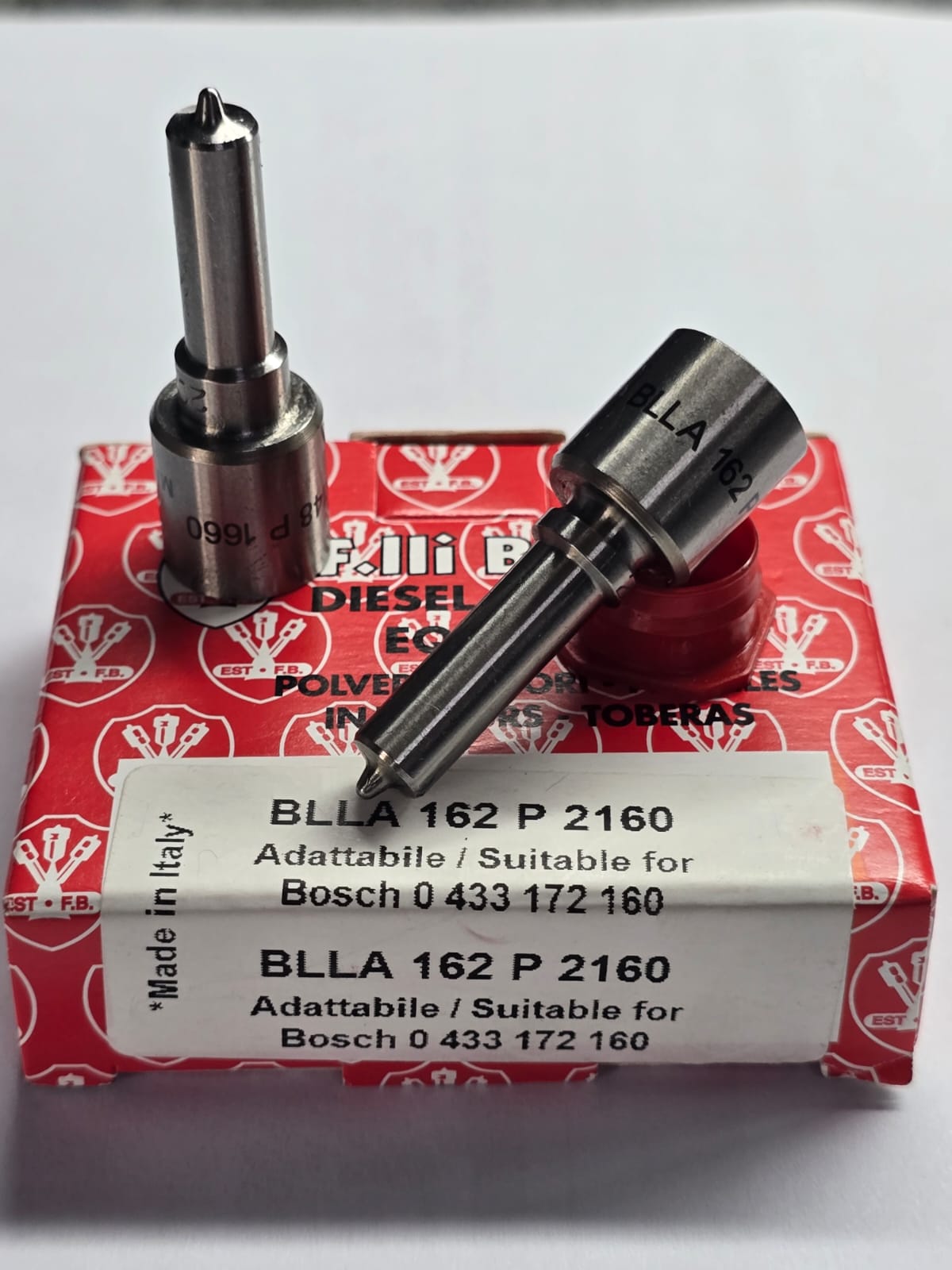Diesel Centar
BLLA 160 P 2190
BLLA 160 P 2190
Couldn't load pickup availability
BOSCH INJECTOR NOZZLE: DLLA160P2190 – FULL SPECIFICATION
I. Key Identification & Compatible Injectors
Nozzle (Injector Tip) P/N: DLLA160P2190
BOSCH MEC / Catalog Number: 433172190 (0 433 172 190)
System Manufacturer: BOSCH Common Rail Diesel Injection System.
Compatible Injector Assembly P/N(s):
- BOSCH Injector Reference: 0 445 110 414
- OEM / Vehicle Manufacturer: RENAULT
Typical Applications:
• Renault Megane 1.6 dCi
• Renault Scenic 1.6 dCi
• Renault Trafic 1.6 dCi
• Renault Kangoo / Master 1.6 dCi (shared DV6 / F9Q engine variants)
• Other Renault passenger cars and light commercial vehicles using 1.6 L common-rail diesel
II. Vehicle / Engine Application & Technical Data
Primary Vehicle Application: Renault 1.6 L dCi common-rail diesel engines for small and medium passenger cars and vans.
Engine Type: 1.6 L inline-4, Euro 4 / Euro 5 compliant.
Power / Performance Range:
- Horsepower: ~90–145 HP
- kW: ~66–107 kW
Injector Technology: BOSCH Common Rail Solenoid Injector (CRI)
Nozzle Type: DLLA160P2190 — precision multi-hole nozzle for high-pressure injection.
Technical Characteristics:
- Number of Holes: 7
- Spray Angle: 160°
- Operating Pressure: 1600–1800 bar typical
- Material: High-speed, heat-treated tool steel
- Fuel Compatibility: EN 590 Diesel / B7 biodiesel blends
- Performance Features: Optimized for precise atomization, efficient combustion, low emissions, and long service life
- Emission Compliance: Euro 4 / Euro 5 engines
III. Critical Technician Notes (MUST-DO)
1. Clean Installation: Ultrasonically clean nozzle before installation to prevent contamination.
2. Sealing Components: Always replace copper crush washers, O-rings, and injector seals.
3. Injector Mounting: Use new clamp or stretch bolts; follow Renault OEM torque and alignment specifications.
4. Post-Installation Testing: Perform leak-back and test-bench spray pattern verification.
5. Calibration / Coding: If required, use Renault or BOSCH diagnostic tools to code or calibrate the injector.
6. Fuel System Quality: Replace fuel filters and ensure fuel is clean and water-free; DV6 / F9Q injectors are highly sensitive.
7. Storage & Handling: Keep nozzles in a dry, dust-free environment; avoid impacts or dropping.
8. Long-Term Monitoring: Check injector performance (leak-back, idle, load response) after installation to detect early nozzle wear.
9. Common Fault Symptoms to Monitor: Hard cold start, rough idle, black smoke, loss of power, or excessive fuel return flow.

